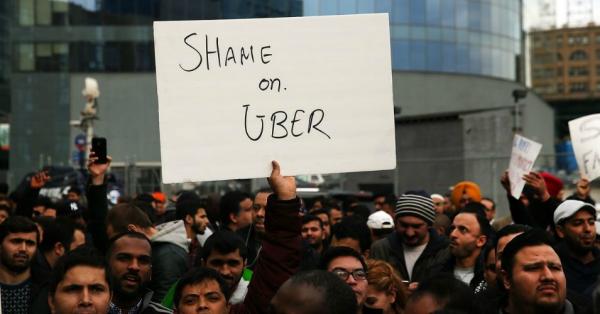Solitary ride "sharing" is bad
Real bad. And now we have (further) proofs that it is.

Mother Jones comments today a report released this week about ride-hailing services like Uber and Lyft.
The major conclusion is that:
- rather than simply replacing other cars, Ubers and Lyfts are increasing the total number of car trips, and our collective carbon footprint, causing an estimated 69 percent more emissions than the trips they displace
One reason why this happen is “deadheading”, that is the fact that ride-hailing vehicles travel many miles empty, when they leave one passengers and go pick the next one. Just like the taxis they are out to disrupt (and which, in my humble opinion, deserve full disruption in many places, but that is another story).
The other reason is that, at least in some places, “ride-shares are replacing trips [people would] otherwise take by mass transit, bike, or on foot”.
Deadheading alone makes non-pooled ride-hailing trips 47 percent more polluting than a private car ride. The report concludes that ride-sharing is “increasing vehicle travel, climate pollution, and congestion” in cities and suburbs alike.
The solutions are obvious…
… and would be the same even if ride-sharing services were all offered by driverless, electric, non-polluting cars:
-
congestion is bad, and so are wasted money and time. Regardless of pollution
-
ride sharing must be electric (also because it lasts longer
-
solitary rides must become much more expensive than pooled/shared rides
-
the way to go (in dense cities, at least) is to strengthen public transit, but completing it with ride shares that only replace the “first- and last-mile connections” to and from stations, that train or buses cannot cover
Who writes this, why, and how to help
I am Marco Fioretti, tech writer and aspiring polymath doing human-digital research and popularization.
I do it because YOUR civil rights and the quality of YOUR life depend every year more on how software is used AROUND you.
To this end, I have already shared more than a million words on this blog, without any paywall or user tracking, and am sharing the next million through a newsletter, also without any paywall.
The more direct support I get, the more I can continue to inform for free parents, teachers, decision makers, and everybody else who should know more stuff like this. You can support me with paid subscriptions to my newsletter, donations via PayPal (mfioretti@nexaima.net) or LiberaPay, or in any of the other ways listed here.THANKS for your support!